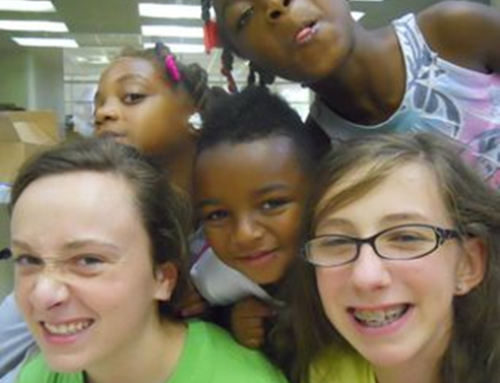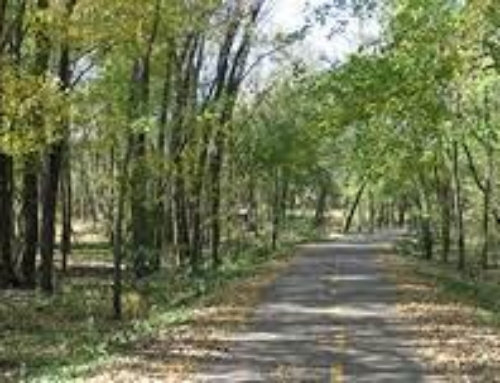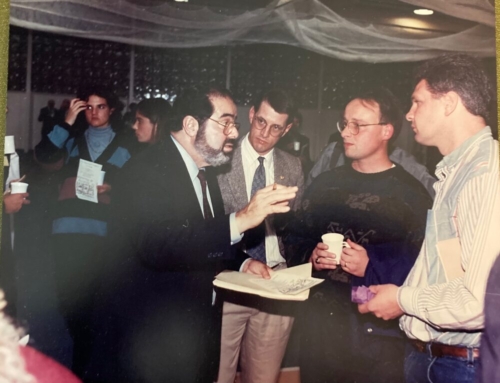Brooklyn River Babies Cry for Help
As we journey upstream, we must remember that everyone is captive to their own experiences.
Whether we grew up in Brooklyn or Bel Air, we share this limitation. Those living in gated communities can’t truly comprehend the challenges that face families living in underserved communities. Likewise, those living in the under-resourced urban cores cannot imagine either the pressures or the opportunities of families living in the burbs. Humans have difficulty imagining worlds unseen. We can only truly know our own world: we merely believe that we understand the experiences of others.
Our experiences, in turn, influence our perspectives. Failing to appreciate that perspectives are gained from a specific vantage point, we wrongly intuit that everyone should share our point of view. But things look differently depending on which side of the river we stand — whether we are standing upstream or downstream. Our experiences shape not only what we see and how we see things, but what we look for and what we tend to miss. Our limited view inevitably creates blind spots. To gain a fuller picture of the world, we must become curious and go upstream to gain the perspective of others.
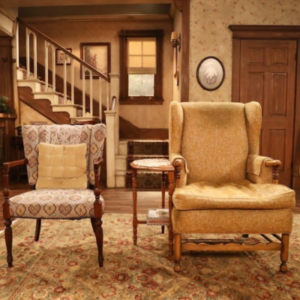 I have plenty of fond memories of Oma’s farm. Playing soccer in the cow pastures. Swinging from a rope in the hayloft. During the fall, every Sunday I would watch NFL games with my uncles. In the summers we would go swimming in Oma’s pond. During the winters, we would go ice skating on it. As I got older, I would work there during the summers. I helped milk the cows and feed the calves, I drove tractors and shoveled manure and I threw bales of hay. My most fond memories are of all of us singing old Johnny Cash and Gospel songs together. My dad would play the drums, my uncle would play his electric guitar, and my other uncle would play his harmonica as we sang, “Will the circle be unbroken.”
I have plenty of fond memories of Oma’s farm. Playing soccer in the cow pastures. Swinging from a rope in the hayloft. During the fall, every Sunday I would watch NFL games with my uncles. In the summers we would go swimming in Oma’s pond. During the winters, we would go ice skating on it. As I got older, I would work there during the summers. I helped milk the cows and feed the calves, I drove tractors and shoveled manure and I threw bales of hay. My most fond memories are of all of us singing old Johnny Cash and Gospel songs together. My dad would play the drums, my uncle would play his electric guitar, and my other uncle would play his harmonica as we sang, “Will the circle be unbroken.”
My grandma and uncles were hard working, God-loving, church going people. They were also what could be defined as racists. There was the occasional racial slur. One uncle told me that black folks weren’t smart enough to be NFL quarterbacks. To the best of my knowledge, my uncles were the only farmers in Upstate New York who flew a Confederate flag. My uncles introduced me to the idea that the Civil War was not about slavery — it was about states’ rights, which was a common view among Segregationists. Naturally, they voted for the Segregationist candidate, George Wallace, in the 1968 Presidential Election. Unsurprisingly, Governor Wallace didn’t do very well in New York, but he did carry five southern states, including Louisiana.
In reality, my family was merely a reflection of the times: times that many white folks my age would rather forget. To frame the historical context, the most popular TV show at the time was “All in the Family.” “All in the Family” ran from 1971 – 1979 and was the first show to top the Nielsen ratings for five years in a row. Norman Lear created Archie Bunker as a narrow-minded, bigoted racist. Lear wanted audiences to embrace Archie, but reject his racism.
It backfired. The racial parody was entirely lost upon the viewers. Fans loved Archie because of who he was and what he said — not in spite of it.
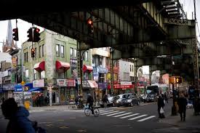
Regardless, whether it was God’s sense of humor or merely ironic, my Oma’s nearest neighbors were a black family who lived a half- mile down the road. So, just like Archie Bunker, they had their own version of “the Jeffersons” as their “next-door neighbors.” When my uncles were looking for a farm laborer, the only person willing to do the work was a young black man from that family. His name was D’Arthur. Contrary to my uncle’s world view, D’Arthur was a hard worker. As a result, my uncles treated him with respect.
When he was working in the barn with my uncles, one of them would go to the house to bring him an ice-cold Mountain Dew. After a hard morning of milking the cows alongside my uncles, Oma would prepare him a lunch and he would eat with the family at the kitchen table. Apparently, the feelings of admiration were mutual. D’Arthur would often stop by Oma’s house on his days off, usually around supper time. They would pull up an additional chair and set out another place setting. D’Arthur never left Oma’s house hungry. Although they never expressed it as such, my uncles must have rationalized that “D’Arthur wasn’t like those other black folks.” He was more like family.
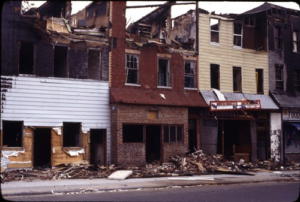 Other than the occasional conversation at my grandma’s house, after we moved to the suburbs, the subject of race seldom came up. Forced busing was no longer an issue. School race riots were a thing of the past. Since there were no black students at our school, there weren’t many occasions for the subject of race to come up. The only conversation I recall about race was when I was in the eighth grade. The school system had transferred a Hispanic student to Greece Athena Junior High. His name was Jose.
Other than the occasional conversation at my grandma’s house, after we moved to the suburbs, the subject of race seldom came up. Forced busing was no longer an issue. School race riots were a thing of the past. Since there were no black students at our school, there weren’t many occasions for the subject of race to come up. The only conversation I recall about race was when I was in the eighth grade. The school system had transferred a Hispanic student to Greece Athena Junior High. His name was Jose.
Word got out that the reason for Jose’s transfer was that he had been expelled from his previous school. Jose was extremely quiet and caused no problems at our school. Maybe the change of environment was therapeutic for him. Or maybe the rumors weren’t even true. Regardless, Jose had difficulty living down his reputation. As a result, he had very few friends at our white, middle-class junior high school. However, one of my friends, Tim, went out of his way to befriend Jose.
One day Tim and I got into a conversation about race. Somehow our conversation about Jose had drifted into an argument about black folks. I told Tim the simple facts about black people, excluding D’Arthur, of course. Tim countered that I was a racist. I scratched my head. “How could stating obvious facts about a group of people be racist?” I wondered. We all had seen what happened on the national news. His comment left me confused and slightly offended. I wasn’t saying anything that Archie Bunker hadn’t already eloquently articulated on TV that week.
I asked him to explain it to me again. He told me that I was expressing prejudice — that it was wrong to make a blanket statement about an entire group of people. I still didn’t get his point. Nor did I make friends with Tim’s new Hispanic friend, Jose.
In addition to Oma’s house, church life was also very important to me. By the time I was 13, I had read the Bible from cover to cover 3 times. Most of my Bible was underlined and highlighted. I had plenty of notes in the margins. I loved reading the Bible and I loved going to church. I particularly enjoyed the sermon. Every Sunday I would feverishly take notes in my spiral notebook. After I got home, I would look up the Scripture references the pastor had used during his sermon.
We went to church three times a week: Sunday morning, Sunday night, and Wednesday night. The only exception was during the NFL playoffs, and of course the Super Bowl. I was sure God understood. On Sunday afternoons, I was the one who made sure we left Oma’s house to make it in time for Sunday night church.
One particular Sunday night, when I was an upperclassman in high school, we had a special guest speaker from Brooklyn, New York, Pastor Bill. Seeds were planted in my soul that night that wouldn’t germinate until three decades later.
Prior to moving to Brooklyn, Pastor Bill was on staff at a church in Davenport, Iowa. There, he ran the largest bus ministry in the country, transporting 2,000 children to church every Sunday morning. Although his bus ministry was thriving, Bill was restless. He began to look for bigger challenges to ply his skills. He began to visit New York City in the late 70’s. There, he asked the locals what the toughest neighborhoods in New York were. Then he would tour these neighborhoods. Eventually, he settled on the Bushwick neighborhood in Brooklyn.
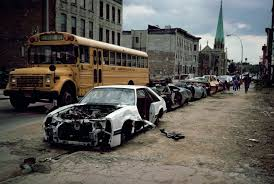 Prior to World War II, Bushwick was a Sicilian neighborhood. Like much of New York at the time, it was 90% white. As the Great Migration began in the 1950s, white families were slowly being replaced, not only by black families, but also by Puerto Rican families and families from other Caribbean Islands. Along with White Flight came the inevitable urban decay. By the mid-1960s, Bushwick had become “a no man’s land of abandoned buildings, empty lots, drugs and arson.” (New York Times, February 2, 1986). Things got worse in Bushwick after the blackout of 1977.
Prior to World War II, Bushwick was a Sicilian neighborhood. Like much of New York at the time, it was 90% white. As the Great Migration began in the 1950s, white families were slowly being replaced, not only by black families, but also by Puerto Rican families and families from other Caribbean Islands. Along with White Flight came the inevitable urban decay. By the mid-1960s, Bushwick had become “a no man’s land of abandoned buildings, empty lots, drugs and arson.” (New York Times, February 2, 1986). Things got worse in Bushwick after the blackout of 1977.
Many New York City neighborhoods experienced damage by vandalism after that infamous black out. Bushwick, however, was completely devastated. For several days after the blackout there was continuous looting, arson, and rioting. Bushwick was left without a commercial hub. The remaining middle-class families who could leave, did. Most of the damaged buildings were left vacant and became makeshift headquarters for pimps, gangs and drug dealers. By 1979, Bill put an “X” on his map and moved from the quiet cornfields of suburban Iowa to seemingly post-apocalyptic Brooklyn, New York.
The verse that he shared with us that Sunday night was from Ezekiel 22:30, “I looked for someone among them who would build up the wall and stand before me in the gap on behalf of the land . . . but I found no one.” In the preceding verse, Ezekiel said that Israel had “practiced extortion . . . they have oppressed the poor and needy.” God was looking for someone to stand up for the disadvantaged and repair the city. God was looking for someone “to stand in the gap,” but He couldn’t find anyone.
In that message, Pastor Bill challenged not only our local congregation, but the way the entire American Church thought about missions. Churches were sending missionaries to Africa and South America, but who was going to our inner cities? Who will rebuild our cities? Who would stand in our urban gaps? In the midst of White Flight, Bill rebuked the Church for leaving our cities when they needed us most.
Then he shared the struggles and hopelessness of the families who lived in Bushwick. He told us stories of the children he worked with and their parents. He also shared stories about the harrowing dangers of Bushwick, Brooklyn. He told us about his deacon, a black man who was killed on the steps of his church. There was the woman who was a Sunday-School bus driver, who was raped on the rooftop of an abandoned 15-story building and left there for dead.
Then there was his staff member found dead in the ministry’s bus garage. To secure the building, they placed bars on all the windows and roll-down metal doors on all its entrances. To protect their Sunday school buses, they built chain-link fences topped with razor wire. He told us of an encounter in which he was hit on the head with a brick. As he was speaking to us that night, his wandering left eye still showed signs of that encounter. Yet, despite the danger, he stayed. Why?
“When you are up close, you get to see the needs first hand and you feel the urgency,” he explained. You sense the desperation. For him, it was no longer a six o’clock-news story or some grim statistic. It was his neighborhood; his people. Despite Bushwick’s chaos, more than 5,000 children were bused to Sunday School every weekend, making his children’s ministry the largest Sunday School program in the country. The children came because he offered them hope, purpose, and living proof that God loved them.
Pastor Bill left us that night with one question: “Can one person make a difference?” The prophet Ezekiel thought so. God wasn’t looking for an army, a brigade or even a platoon. God was looking for one man. One missionary. That’s it. One person to stand in the gap. It would only take one person for God to restore a city. If you were to go, God would take care of the rest. Will you go?
That night challenged me to the core and that question has pestered me, ever since, like a small pebble in my shoe. For the first time, I heard of the desperate need in our own inner cities. For the first time I had heard that our inner cities should be the object of our mission’s efforts. For the first time I heard it was our responsibility to stand in the gap. Would I go? The price was much too high; it was too big of a lift and too big of an ask for me. His stories scared me to death. I am a chicken by nature. I am afraid of heights and you’re asking me to go to Brooklyn? No, not me.
The cries of the Brooklyn River Babies were new to my ears. I had never heard stories like that before, but they were stories I’d never forget. They were quite compelling, especially as articulated by someone as passionate as Pastor Bill. Yet, somehow, I was as comfortable with avoiding the cries of the Brooklyn River Babies as I was comfortable with avoiding my eight-grade classmate Jose.
The gap remained ― at least for now. Maybe God can find someone else.

